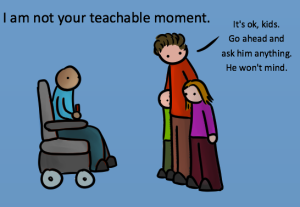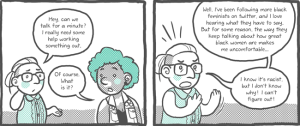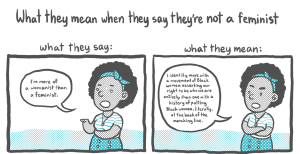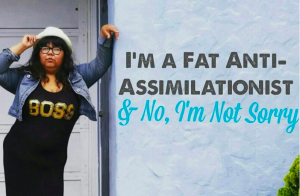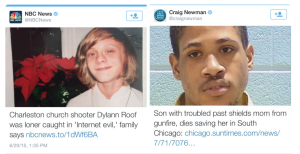Originally published on Medium and cross-posted here with their permission.
Gaslighting is the attempt of one person to overwrite another person’s reality.
There’s a good chance that you now know more about gaslighting than most therapists.
And that is really unfortunate, because if you have experienced gaslighting, it’s going to be really hard to untangle it yourself.
Unfortunately, you may have to, and I want to tell you that you are not alone.
Let me share my experience. Here are ten things I wish I’d known at the beginning. Let’s do this together.
1. Gaslighting Doesn’t Have to Be Deliberate
About the fifth time I called a close friend of mine on the phone, gasping for air, asking “Am I a monster?” he finally said, “Emma, he’s gaslighting you.”
What the hell is gaslighting? I thought.
Wikipedia told me that it came from an old movie, where the main character makes changes in the environment and then insists to his victim that she is simply imagining these changes.
Whaat? I thought. My partner isn’t doing that. I could not imagine him plotting and manipulating my environment or our interactions to make me feel crazy. He’s a human being who is hurt, who I keep hurting. It’s me, not him.
Unfortunately, the first definition I looked up was woefully inadequate. Gaslighting does not require deliberate plotting. Gaslighting only requires a belief that it is acceptable to overwrite another person’s reality.
The rest just happens organically when a person who holds that belief feels threatened. We learn how to control and manipulate each other very naturally.
The distinguishing feature between someone who gaslights and someone who doesn’t is an internalized paradigm of ownership. And in my experience, identifying that paradigm is a lot easier than spotting the gaslighting.
Gaslighting tends to follow when intimidation is no longer acceptable.
I believe that gaslighting is happening culturally and interpersonally on an unprecedented scale, and that this is the result of a societal framework where we pretend everyone is equal while trying simultaneously to preserve inequality.
You can see it in the media constantly.
For instance, every time an obvious hate crime is portrayed as an isolated case of mental illness, this is gaslighting. The media is saying to you, What you know to be true is not true.
Intimate partner violence wasn’t seen as a serious crime until the 1970s. So, did we, in the last forty years, address the beliefs that cause intimate partner violence? No.
But now if you abuse your partner, you’re usually considered to be a bad person. So what do you do, with all the beliefs that would lead you to violence, if violence is no longer an acceptable option?
You use manipulation, and you use gaslighting.
2. Manipulation and Gaslighting Are Distinct Behaviors
Maybe a better way to put this is that gaslighting is a type of manipulation, but not the only type.
Manipulation usually centers around a direct or indirect threat that is made in order to influence another person’s behavior. Gaslighting uses threats as well, but has the goal of actually changing who someone is, not just their behavior.
It’s important to recognize that gaslighting and garden variety manipulation are not the same.
Both will degrade your self-esteem, but gaslighting, when effective, will actually damage your trust in yourself and your experience of reality.
3. Gaslighting Doesn’t Always Involve Anger or Intimidation
The book The Gaslight Effect refers to a type of gaslighting called glamor gaslighting.
This is where the gaslighter showers you with special attention, but never actually gives you what you need. They put you on a pedestal, but then they’re not there. In fact, they may get angry at you when you need a shoulder to cry on.
It becomes difficult, after a while, to identify why it is that you feel so alone and hollow.
In another type of gaslighting, the gaslighter is always transformed into the victim. Whenever you bring up a problem, you find yourself apologizing by the end of the conversation.
For me, these were the worst exchanges.
Every gaslighter/gaslightee relationship is different, but for me, there was a very specific pattern. I would say something to him. He would have a very strong emotional reaction to it, far above what I would have anticipated. I would backtrack to try figure out what I had said and how to make it better.
He would accuse me of inconsistency when I backtracked.
I would try to explain that I was adjusting to try to communicate best with him, because clearly I was failing.
He would tell me that my inconsistency implied that I was lying.
I would say, “No, no, I know I’m not lying. Maybe I just can’t remember it right.”
“It seems I can’t trust your memory,” he would say.
We would never return to the original issue. I usually ended up crying hysterically.
4. It’s Normal Not to Be Able to Remember What Happened
This, more than anything, is something I wish I had known.
It was a secret I kept, that fed my self doubt and guilt for years after I left. I used to black out. I remember conversations where I would start standing in the kitchen and end up in a ball on the floor.
Just days after it happened, I wouldn’t be able to remember what happened in the time in between. I wouldn’t even be able to remember what the conversation was about. My abuser accused me of abuse while I was with him – and then publicly for years after.
It’s one of the reasons I left – because I couldn’t figure out what I was doing or how to fix it, and I couldn’t bear the thought that I might be abusive to someone. I’ve ripped my memories apart, trying to figure what it was that he experienced. What it was that I did.
And I have found some things in me that needed to change, as all people who look deeply at their abusive tendencies will find. But I couldn’t, in my own memory, find what it was that he saw in me.
I could not find the narcissist. I could not find the vicious manipulator. I could not find the home wrecker. But I had black spots in my memory. Completely black. And I wondered , Is that when it happened? Is that when I abused him?
Losing spots in your memory makes it very plausible when someone tells you that they cannot trust your memory. It makes it very plausible when they tell you that you are abusive.
But it’s normal to lose your memory when you’re being gaslighted. In fact, it is one of the signs that you should look for. It’s a good sign that it might be time to leave.
5. There Are Distinct Stages (And These Stages Can Progress After the Relationship Is Over)
A gaslighter doesn’t simply need to be right. They also need for you to believe that they are right.
In stage one, you know that they’re being ridiculous, but you argue anyways.
You argue for hours, without resolution. You argue over things that shouldn’t be up for debate – your feelings, your opinions, your experience of the world.
You argue because you need to be right, you need to be understood, or you need to get their approval.
In stage one, you still believe yourself, but you also unwittingly put that belief up for debate.
In stage two, you consider your gaslighter’s point of view first and try desperately to get them to see your point of view as well.
You continue to engage because you’re afraid of what their perspective of you says about you.
Winning the argument now has one objective : proving that you’re still good, kind, and worthwhile.
In stage three, when you’re hurt, you first ask, “What’s wrong with me?”
You consider their point of view as normal. You start to lose your ability to make your own judgements. You become consumed with understanding them and seeing their perspective. You live with and obsess over every criticism, trying to solve it.
Looking back, I see that I was deep in stage two when I left the relationship. However, I continued to try to have a friendship with him for months after. I longed for resolution, understanding, and forgiveness.
And when I finally went no contact, instead of healing, I actually moved into stage three. I didn’t understand, nor did I know how to solve, the gaslighting that I continued to do to myself after the relationship was over.
If I could go back and give myself one piece of advice, it’d be to go no contact immediately for at least a year. And maybe that’s what other might need, too.
It’s really, really hard. It’s hard because it may still feel like that understanding and resolution is right around the corner. It’s hard to let go of that.
But think: You don’t have to yet. Just commit to a year. Because anyone who isn’t abusive won’t punish you for the space you need to heal.
And when I say “no contact,” I mean complete no contact. Distance yourself from mutual friends. Block your gaslighter on social media. Ask your friends not to give you any new information about them unless it directly pertains to your safety.
Fuck anyone who says you are being unreasonable.
You need this to heal, and you need the space to learn how to stop gaslighting yourself.
6. There Are Distinct Traits That Make You More Susceptible to Gaslighting, But They Can Also Be Super Powers
There are three tendencies that will pull you into a gaslighting exchange. These tendencies are the need to be right, the need to be understood, and the need for approval.
Additionally, certain traits – such as being empathic, being a caretaker, needing to see your partner in a positive light, and being a “people pleaser” – might make you more susceptible.
But I would strongly urge you to not go in and try to crush these wonderful things about you.
You care strongly about your ideas, and about other people. You want to understand and be understood. You care about your effect on other people, and you’re willing to change to accommodate the people around you.
And ironically, your gaslighter probably told you that you were selfish and cruel and oblivious. And then perhaps your therapist told you that you need to stop caring so much because it draws you into abuse. What to do?
Empathy is important. It’s important for all of us. It makes me angry when people tell me that my empathy is a weakness. My empathy is a super power. My desire and ability to empathize kept me locked into a cycle of abuse, yes. But my desire to empathize wasn’t the problem.
The ability to hear criticism and then to change yourself for the better based on that feedback is also a fucking super power. Don’t let anyone tell you otherwise. My problem was not my willingness to change, but my willingness to change for the wrong reasons.
Change should make you bigger. It should increase your tank of self-love. It should make you stronger, clearer, more directed, more differentiated, and more compassionate.
The pain of growth is different than the pain of destruction. One will fill you with love and pride, even when it’s hard, and the other will fill you with shame and fear.
No one should use shame or fear to try to get you to change. When they do this, they’re not asking for change – they’re asking for control.
7. You Know What Your Truth Is – You Always Have, and You Always Will
Your gaslighter doesn’t see you.
You are a shadow standing to the side, trying not to attract attention, while they showers their image of you with love and attention. And no matter how much your mind is in knots, you know this to be true.
You know the space you occupy, even if you hate yourself for it. If you look back, if you look inside, you will see that you always knew that something was wrong.
It may feel like you lost your core. But it was always there.
The alarm system always worked. You just learned to stop listening to it. You have not lost as much as you think.
8. The End Game Is Not Confrontation, It’s Non-Engagement
A really common trope I see in movies and literature is the survivor who confronts their abuser. They confront them years later, and in that moment show themselves and their abuser that they don’t have to be afraid anymore.
I crave that catharsis, because I am afraid. But I can never address that fear through confrontation. I can only address it by confidence in my ability to set and enforce my own boundaries.
When you engage in any way, you tell your gaslighter and yourself that your reality is up for debate.
Your reality is not up for debate.
If you’re like me, you’ve had a million conversations in your head, and it’s those conversations that are killing you. Your reality is not up for debate. You don’t have to rehearse for a conversation that you will never have.
It’s ridiculous when someone tries to tell you who you are, what you feel, what you think, what you intended, or what you experienced. When it happens, you should be angry, puzzled, or maybe even concerned for them.
You might stop, stunned, and ask, “What would make you think that you could know what’s inside of me? Are you okay?”
Instead, many of us will find ourselves trying to reach understanding.
No, that’s not what happened, that’s not what I felt, that’s not what I feel!
And this is a reasonable response – to a point. But if the goal of the conversation is to exchange power, and not to exchange understanding, you will never, ever, ever win.
I would like to propose that one solution to feeling less susceptible to gaslighting is to learn how to identify the objective of a conversation.
A conversation with the purpose of mutuality should not make you feel afraid, ashamed, disoriented, or confused.
You don’t have to figure out what it is they’re doing, you only have to figure out what you are feeling. You only have to know when mutuality is no longer the objective, and learn how to stop engaging when that happens.
Try:
- “We’ll have to agree to disagree.”
- “I don’t like how I feel right now, and I want to finish this conversation later (or never).”
- “What?”
- “You’re trying to tell me what my experience is, and I’m not okay with that.”
- “Don’t contact me again.”
“Communicate, communicate, communicate,” right? “You can solve anything with enough communication.”
That might be a mantra, but it’s wrong.
You can solve a lot of things with communication, so long as the objective of both people is understanding. But the minute someone tries to replace your experience, it’s time to stop communicating, at least on that subject.
9. You Must Confront the Threat
Every gaslighting exchange exists under the shroud of some kind of threat. For my relationship, the threat started out as disapproval, then it was the relationship that was threatened, and eventually the threat escalated to his own life.
I had no ability to confront or resist the gaslighting until one by one, I confronted the fears that these threats produced in me.
I grieved. I spent a week in bed and cried over everything I had poured into the relationship. One by one I tried to internally break my attachments to the things that made me feel trapped.
I cried over the immense shame I felt and tried to build the strength to be able to hold it. First I grieved the family that I wanted so much to be a part of. Then I grieved my relationship with him. Finally, I questioned whether it was right for him to make me responsible for his life. It wasn’t easy.
And it was another six months before the relationship ended. But when I realized that I didn’t want to be in the relationship anymore, I had already internally confronted the threats that were waiting for me – and as one by one they came out in full force, I was able to put one foot in front of the other and walk out the door.
10. Gaslighting May Be Amplified in Families, Poly Relationships, and Other Groups
It’s hard to stand firm when one person is trying to replace your experience, but when they have a chorus of supporters, it is nearly impossible. There is a reason why cult abuse can lead to a complete breakdown of someone’s personality.
Group manipulation and abuse is devastatingly effective.
I can’t easily explain the level of shame and fear that a group you’re deeply invested in can produce with a coordinated attack. We need to be very careful of this in poly groups so we do not exploit this power or unwittingly enable abuse.
I know there is a lot of shame tied up in ending a relationship, and no one wants to be the bad guy. But we all owe it to each other to not participate in relationships where anyone’s self esteem is being degraded.
It doesn’t matter whose fault it is, and it doesn’t matter whether or not it is fair. There are bigger things at stake here. Let’s not punish each other for doing the things we need to do to be healthy.
***
For more information on gaslighting, or to get support if you or someone you know is being abused, visit the National Domestic Violence Hotline or call 1-800-799-7233.
[do_widget id=’text-101′]
Search our 3000+ articles!
Read our articles about:
Our online racial justice training
Used by hundreds of universities, non-profits, and businesses.
Click to learn more







